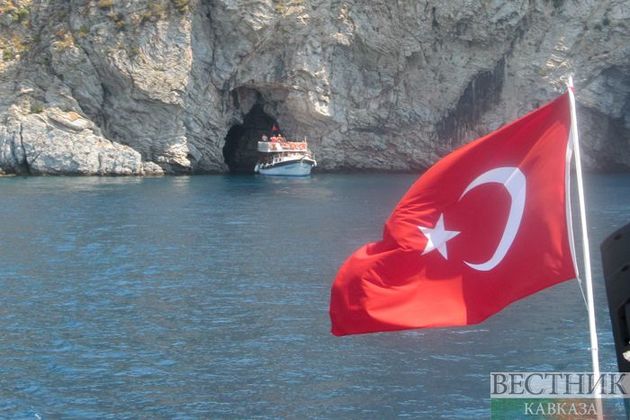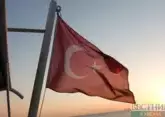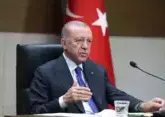In an effort to improve its relations with EU countries, Turkey last year withdrew its seismic exploration ship from the eastern Mediterranean, while claiming that this withdrawal was only for maintenance purposes. However, it is unclear what will happen when the maintenance is complete. Arab News reports that relations with Turkey were the dominant agenda item at last week’s EU summit. However, the chapter dealing with Turkey in the final communique was titled “East Mediterranean,” suggesting that the bloc is not interested in Ankara on issues other than the situation in this area.
Oil and gas exploration in the eastern Mediterranean is a complicated issue for reasons other than the maintenance of the seismic exploration ship. In 2018, Turkey and Libya’s Government of National Accord signed a memorandum of understanding demarcating their maritime jurisdiction areas, creating a contiguous Turkish-Libyan area separating the eastern Mediterranean from the remainder of the sea. According to this disputed agreement, if gas is to be extracted from the eastern Mediterranean to be transported to Europe by a pipeline laid on the seabed, it has to cross Turkey’s maritime jurisdiction area, thus requiring Ankara’s consent.
The EU made clear in the final communique following last week’s summit that it is ready to engage with Turkey in a “phased, proportionate and reversible manner to enhance cooperation in a number of areas.” This wording gives advance warning to Ankara that the EU may take further decisions at its next summit in June.
Another important subject in the EU communique was the reference to updating the Turkey-EU customs union agreement, which entered into force at the end of 1995. This subject has two aspects. One is Turkey’s insistent request to prevent trade diversion from countries with which the EU has a free trade agreement (FTA). This is because the industrial commodities of such third countries can enter the Turkish market without being subjected to customs duties because of Turkey’s customs agreement with the EU. But if Turkey does not have its own FTA with that third country, it has to pay customs duty in order to export its industrial products to that country. Ankara has insisted that the EU should make it a condition for such countries to sign a similar agreement with Turkey, but the bloc has so far turned a deaf ear to this suggestion.
The second is related to the EU’s indirect pressure on Turkey to recognize Cyprus as a state. The Republic of Cyprus was created in 1960 with Turkey as one of its three guarantors, along with Greece and the UK. According to the constitutional treaties establishing the state, Turkish Cypriots and Greek Cypriots are two “politically equal” components of the republic. The Greek Cypriots refuse this equal status and insist on treating the Turkish Cypriots as a minority.
Now, by using the customs union agreement as a tool, the EU forces Turkey to indirectly recognize the state of Cyprus. This arrangement is formulated in the final communique as follows: “On economic cooperation, we (the EU leaders) invite the Commission to intensify talks with Turkey to address current difficulties in the implementation of the Customs Union, ensuring its effective application to all Member States.” This text reveals that the EU’s aim in updating the customs union is not the elimination of the trade diversion, but to ensure that Turkey recognizes the Greek Cypriot state.
There is a similar difference in the EU’s approach to an international meeting to be held in Geneva this month for the solution of the Cyprus problem under UN auspices. It is a 5+1 meeting, with the participation of the Turkish and Greek communities of Cyprus, the three guarantor states, and the UN. The relevant paragraph of the EU summit communique reads as follows: “(The EU) looks forward to the resumption of negotiations under the auspices of the United Nations in which the EU will participate as an observer.” Turkey is not happy with the participation of the EU, and its presence — even in an observer capacity — will further complicate the negotiations.
Another important issue for Turkey resulting from the EU summit was that of visa facilitation for Turks who want to visit EU countries. This is important for tens of millions of Turks, but the EU does not even mention it in the communique. However, the side that failed to fulfill its obligations in this particular issue is Turkey, because it could not fulfill the 72 criteria required by the bloc.
European Council President Charles Michel and European Commission President Ursula von der Leyen are scheduled to visit Turkey this week. This will be a new attempt to mend bridges following Turkish President Recep Tayyip Erdogan’s repeated harsh rhetoric against the EU.










